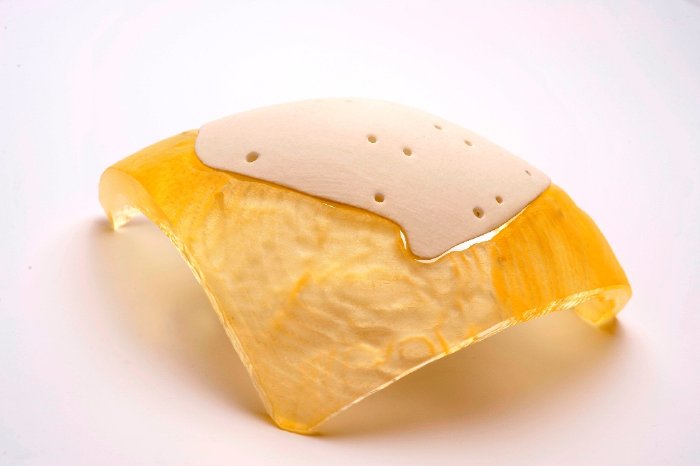Layer manufacturing processes, or generative processes, have a very high level of application potential in the area of medical technology. They offer many possible solutions for producing customised implants and prostheses using highly complex internal and external structures. On the basis of data gained with computer tomography for example, implants can be manufactured using selective laser melting which are perfectly adapted to the requirements of the patient in terms of their shape and their structure. Normally, attaining such a high level of quality would not be possible with other production processes - or it would only be possible at an extremely high level of expense.
Perfect patient-specific implants
At the second specialist 'Medical Technology' forum on 24 May, the technologies that are used for the production of implants and prostheses using generative processes will be presented, as well as the materials that are used and the new applications in two sessions. Highly acclaimed speakers from research and industry will highlight the specific new functions of the endo-prostheses which are produced using the selective laser melting procedure. Additionally, reverse engineering and direct manufacturing during the production of individual implants will also be explained. One presentation will focus on titanium, during which a description will be provided of the characteristics of bone-replacement structures that are manufactured in selective laser melting procedures.
RM reduces costs and production times
To be able to keep up with the market requirements of ever improving products with short development times, the production process has to be made both more efficient and cost effective over all. At the same time, the products also have to be smaller, lighter, more attractive, more intelligent and more energy efficient than their predecessors. One of the presentations will explain the way manufacturing costs can be reduced for the manufacturers of implants thanks to additive manufacturing - with products that are different at the same time. The closing presentation of the event will present new ideas and future visions concerning the medical applications of the generative production procedure.
In the accompanying specialist trade fair, on the basis of examples, companies will highlight the specific future potentials that can be derived from RM for medical technology. Operation planning, the production of anatomical models, implants and prostheses, as well as operation aids such as templates, the materials used in artificial tissue, cartilage and bones, the development of artificial organs, and the interactions between medical image processing and 3D modelling will all be highlighted and discussed.
The world of additive manufacturing is visiting Erfurt
The improved levels of precision, the optimised component qualities and the hugely expanded range of materials are making direct manufacturing using generative processes interesting to more and more sectors. This year's Rapid.Tech is mapping out this development and offering both 'old hands' and newcomers superb opportunities for expanding their knowledge and contacts. Accompanying the specialist trade fair, the users' meeting, the 'CAD/CAM and Rapid Prototyping in Dental Technology', 'Medical Technology', 'Aviation' specialist forums and the Design-Engineers' Day will provide a current overview of the status and the development of the production of prototypes, and of the direct production of end-products and their components.
With the 5th STUDENT DESIGN AWARD for Rapid Manufacturing, endowed with a 6,000 Euro prize, talented young newcomers get the chance to stand out through the creative use of generative manufacturing procedures.
The programme for the specialist 'Medical Technology' forum and that of the users' meeting, the Design-Engineers' day, as well as additional specialist forums and information on the STUDENT DESIGN AWARD are available for downloading in the internet at www.rapidtech.de.

